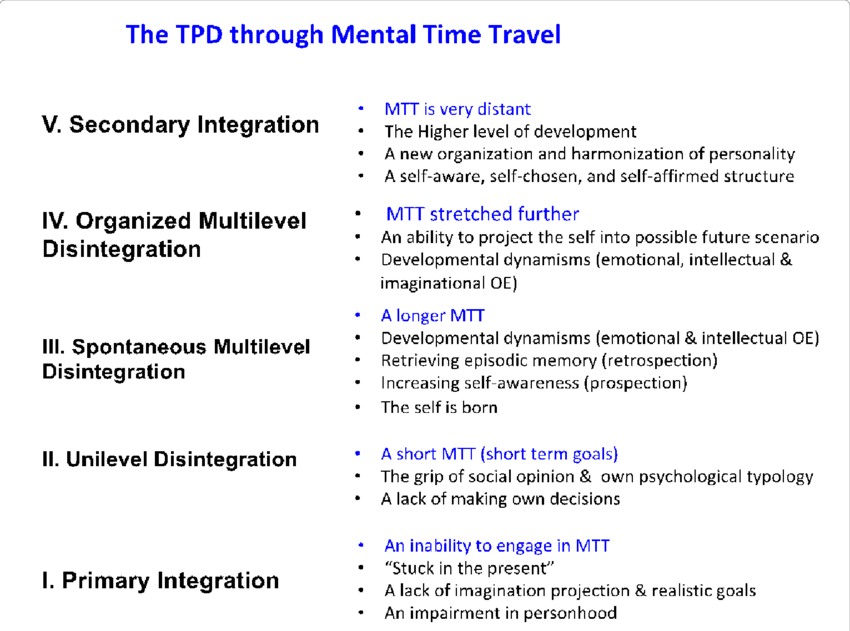Dabrowski offers roadmap to improvement
The theory of Positive Disintegration provides valuable advice to those seeking self-improvement
The steps to Positive Disintegration can be helpful for college students.
February 3, 2022
We have been told since elementary school to “just be ourselves.” This is a message repeated by our role models — who claim it to be a key to social fluency and interpersonal success, while never elaborating on what this statement really means.
Polish personality psychologist Kazimierz Dąbrowski answered this question of what it really means to “be yourself” — or, more aptly what it means to become yourself — with his Theory of Positive Disintegration (TPD). Dąbrowski’s TPD states that the final goal of personality development is to reach the Personality Ideal (PI): the purest and most authentic version of oneself, in which uniquely and personally constructed ideals, morals, values, beliefs and priorities dictate an individual’s being. In order to achieve this PI, one must progress through five levels of Positive Disintegration by growing from internal psychological conflict in order to progress towards true authenticity. What is especially compelling about Dabrowski’s theory is his assertion that what are often regarded as mental handicaps — such as neuroticism, anxiety and maladjustment — are not necessarily negative traits, but rather an essential part of psychological evolution towards an individual’s PI.
At the first level, usually called “Primary Integration”, personality is based almost entirely on membership in a social group. Individuals share in the sense of identity maintained by all members of their group, and subsequently, never push the group’s boundaries or challenge their perceived status quo, as this would threaten the shared identity and ostracize them from a comforting sense of solidarity. Dąbrowski theorizes that individuals at Level I experience little internal conflict because their behavior is always justified by their group.
Level II is a transitory level — and a lonely one. Individuals at this level recognize their state and start to challenge the status quo, which often results in voluntary or involuntary removal from a social group. Someone at Level II will no longer be able to identify with a group, but will not have a solid identity of their own to adhere to. Internal conflict arises due to this sensation of solitude. I see Level II as the “Existential Crisis” stage — you want to be more than just part of a whole, but don’t know who you really are yet. Most individuals at this stage either fall back down to Level I or are thrust into Level III.
Level III entails a state of self-discovery. At this level, people are usually conscious of their growth through the past two levels and refuse to regress and a strong drive to fully discover oneself and reach the PI arises (although this is usually — and ignorantly — seen as an individuality complex). At this stage, individuals will begin constructing their own values, priorities and beliefs. In Level III, individuals come to develop a “new soul.”
At Level IV, the priorities and values explored at Level III have been determined, and people begin to gain the confidence they need to pursue the lives they want for themselves. They understand what they want and why they want it, what they believe and why they believe it and they have set their priorities accordingly. This stage is characterized by extended work towards individually-constructed values. In this stage, an individual is able to improve many aspects of themselves; with their goals in mind, Level IVs become more conscientious, intellectual and generally capable.
Level V is the final achievement of the PI. When someone on Level V walks into a room, their presence is calming yet commanding — like a Jedi. Fully-developed personalities demand recognition and admiration because they are so rare; they have earned complete self-knowledge, have improved themselves by working through the five levels and have an exceptional level of empathy for others going through the five levels — they have been there, and they know it is no easy task. People on Level V are usually high-up in the fields of their passions — this level is what everyone should strive towards.
When others tell us to “just be ourselves” because it will allow us to be happy and flourishing, they are right. However, Dąbrowski’s theory shows us that this is no easy task.
It is up to us to honestly recognize which level we are on if we want to grow. It is almost always more comfortable to remain at Level I, where we are surrounded by friends who share our thoughts, beliefs and ideas. However, the pursuit of one’s PI is — according to Dąbrowski — the only way anyone can truly “become” a fully developed person. It is through self-discovery, a continued striving towards true authenticity and completeness and progression through the Levels of Positive Disintegration that we are able to evolve both as people and as a species. Of course, there are other ways in which a person can progress — how you grow is up to you. Dąbrowski’s theory just acts as a blueprint towards completeness, which is helpful to keep in mind as we go through college, one of the most formative epochs of our lives.






















